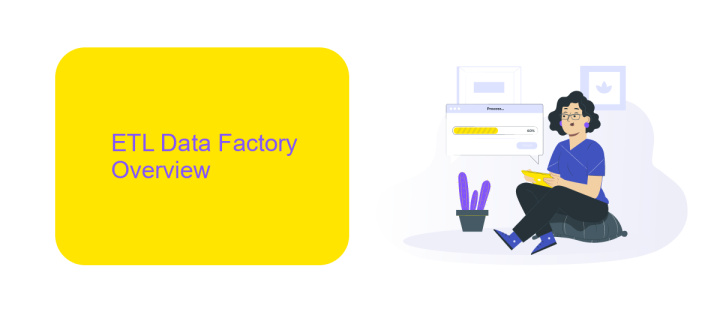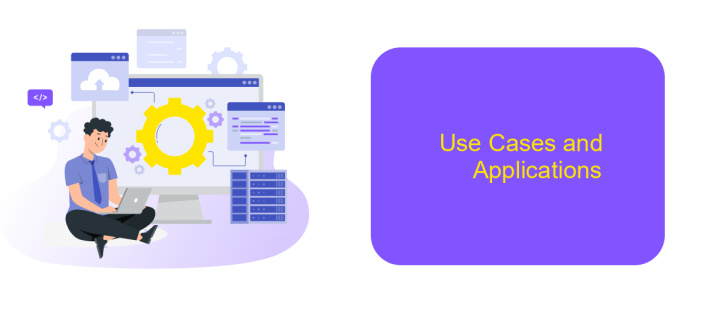ETL Data Factory
ETL Data Factory is a robust and scalable solution designed to streamline the process of extracting, transforming, and loading (ETL) data from various sources into a centralized data warehouse. By leveraging advanced automation and integration capabilities, ETL Data Factory ensures data consistency, accuracy, and accessibility, empowering organizations to make informed decisions and drive business growth.
Introduction
ETL (Extract, Transform, Load) processes are crucial for modern data management, enabling organizations to efficiently gather and process data from various sources. Azure Data Factory is a powerful cloud-based ETL service that allows businesses to create, schedule, and orchestrate data workflows. It simplifies the process of moving and transforming data, making it accessible for analysis and decision-making.
- Extract: Collect data from different sources such as databases, APIs, and file systems.
- Transform: Apply various transformations to clean, aggregate, and enhance the data.
- Load: Transfer the transformed data to a destination, such as a data warehouse or data lake.
Using Azure Data Factory in combination with integration services like ApiX-Drive can further streamline the ETL process. ApiX-Drive provides easy-to-use tools for setting up integrations between various applications and services, ensuring seamless data flow. This collaboration enhances the efficiency and reliability of data operations, allowing businesses to focus on deriving valuable insights from their data.
ETL Data Factory Overview

ETL Data Factory is a robust tool designed to streamline the process of extracting, transforming, and loading data from various sources into a centralized data warehouse. It allows organizations to efficiently manage large volumes of data, ensuring that information is accurate, up-to-date, and readily available for analysis. The platform supports a wide range of data sources, including databases, cloud services, and on-premises systems, making it a versatile solution for diverse data integration needs.
One of the key features of ETL Data Factory is its ability to automate complex data workflows, reducing the need for manual intervention and minimizing the risk of errors. Additionally, it offers seamless integration with third-party services such as ApiX-Drive, which facilitates the setup of integrations and data transfers between different applications. This enhances the overall efficiency and effectiveness of the ETL process, allowing businesses to focus on deriving insights and making data-driven decisions.
Key Features and Benefits

ETL Data Factory is a powerful tool designed to streamline and enhance data management processes. It offers a range of features that cater to diverse data integration needs, ensuring seamless data flow and transformation.
- Scalability: Easily handle large volumes of data with robust scalability options, allowing your system to grow as your data needs expand.
- Automation: Automate complex data workflows, reducing manual intervention and minimizing errors.
- Real-time Processing: Enable real-time data processing to ensure timely insights and decision-making.
- Integration Capabilities: Seamlessly integrate with various data sources and third-party services like ApiX-Drive, simplifying the process of connecting disparate systems.
- Security: Ensure data privacy and compliance with advanced security features and encryption protocols.
By leveraging these features, ETL Data Factory helps organizations optimize their data management strategies, improve operational efficiency, and gain valuable insights. Whether you are dealing with structured or unstructured data, ETL Data Factory provides the tools necessary to transform and integrate your data effectively.
Use Cases and Applications

ETL Data Factory is instrumental in transforming raw data into meaningful insights, making it a vital tool for businesses across various industries. Its ability to extract, transform, and load data efficiently ensures that organizations can make informed decisions based on accurate and up-to-date information.
One of the primary use cases of ETL Data Factory is in data warehousing, where it consolidates data from multiple sources into a single repository. This enables businesses to perform complex queries and generate comprehensive reports. Additionally, ETL Data Factory is essential in data migration projects, ensuring smooth transitions between systems without data loss or corruption.
- Data warehousing and consolidation
- Data migration and system upgrades
- Business intelligence and analytics
- Real-time data processing
- Data integration from diverse sources
For seamless integration and automation of data workflows, services like ApiX-Drive can be utilized. ApiX-Drive simplifies the process of connecting various applications and services, ensuring that data flows smoothly between them. This enhances the overall efficiency of ETL processes, allowing businesses to focus on deriving value from their data rather than managing complex integrations.
- Automate the work of an online store or landing
- Empower through integration
- Don't spend money on programmers and integrators
- Save time by automating routine tasks
Conclusion
In conclusion, implementing an ETL process with Data Factory can significantly streamline and enhance your data management capabilities. By leveraging its robust tools and features, organizations can efficiently extract, transform, and load data from various sources, ensuring data accuracy and consistency. This not only improves decision-making processes but also enables businesses to gain deeper insights and maintain a competitive edge in their respective industries.
Furthermore, integrating ETL processes with services like ApiX-Drive can further simplify data workflows. ApiX-Drive allows seamless integration between different applications and services, automating data transfers and reducing manual efforts. This integration ensures that data is always up-to-date and accessible, enhancing the overall efficiency of your data operations. By utilizing these advanced tools and integrations, organizations can achieve a more agile and responsive data infrastructure, ultimately driving better business outcomes.
FAQ
What is ETL in the context of Data Factory?
How can I automate my ETL processes in Data Factory?
What types of data sources can Data Factory connect to?
How do I monitor and manage my ETL workflows in Data Factory?
Can I use Data Factory for real-time data integration?
Apix-Drive is a universal tool that will quickly streamline any workflow, freeing you from routine and possible financial losses. Try ApiX-Drive in action and see how useful it is for you personally. In the meantime, when you are setting up connections between systems, think about where you are investing your free time, because now you will have much more of it.


